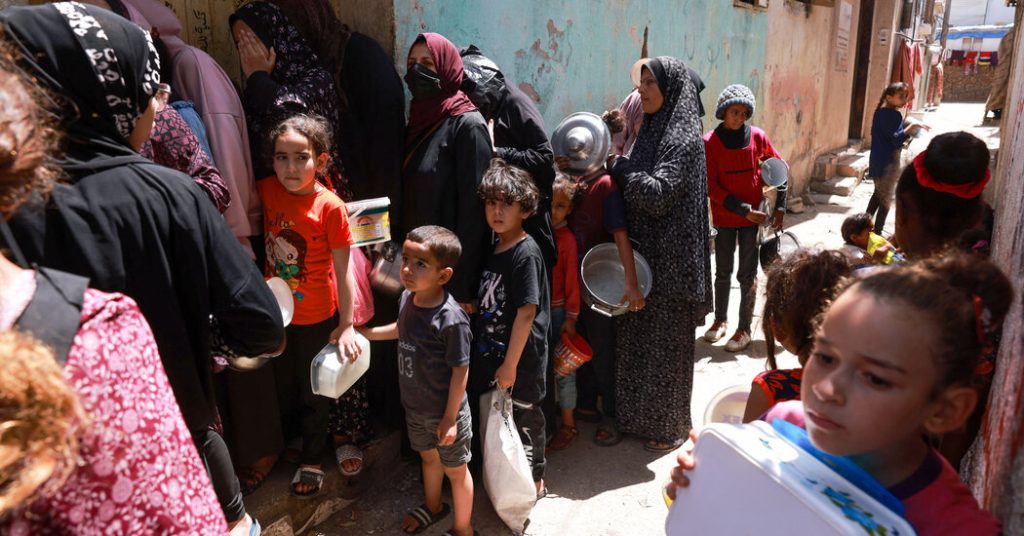A group representing families of the Israeli hostages in Gaza expressed concerns about Prime Minister Benjamin Netanyahu stalling or sabotaging a possible deal for a cease-fire and the release of captives held by Hamas. Negotiations in Cairo, mediated by the United States, Qatar, and Egypt, have faced challenges due to Hamas’s demand for Israel to end its military offensive in Gaza and Israel’s reluctance to make such concessions. The Israeli government issued statements denying reports that they would agree to end the war as part of a deal, leading to speculation that the government was trying to prevent a potential agreement.
The Hostages Families Forum, an Israeli nongovernmental group advocating for the release of the hostages, was “shocked” by the Israeli government’s statements and called on Mr. Netanyahu to show courage and lead in the negotiations. Journalist Nahum Barnea expressed his belief that Mr. Netanyahu was trying to avoid making a decision on the deal by creating obstacles that would prevent its implementation. Mr. Netanyahu, however, denied the accusations, stating that it was Hamas obstructing the deal, and that Israel was ready to pause the fighting to release the hostages.
Egypt has proposed a deal that would begin with a six-week truce in which 33 vulnerable hostages would be released in exchange for hundreds of Palestinian prisoners held by Israel. Israel would also allow the return of displaced Palestinian civilians to northern Gaza with fewer restrictions, a significant concession for Israel. Hamas officials expressed positivity regarding the proposal, but issues like a permanent cease-fire and full Israeli troop withdrawal from Gaza remained unresolved. As of early Sunday, there was no indication that Hamas had accepted the proposed deal, indicating ongoing challenges in the negotiations.
The group representing the families of the Israeli hostages emphasized the need for Mr. Netanyahu to ignore political pressures and make decisions that prioritize the release of the captives. Israeli reporters received statements from the government, blaming Hamas for scuttling the deal by sticking to its demands. Mr. Barnea and other observers believed that the government’s statements were intentionally designed to undermine the chances of reaching a deal. Mr. Netanyahu faced criticism for his handling of the negotiations, with some questioning his commitment to securing the release of the hostages through diplomacy.
Despite the challenges and disagreements, negotiators from Israel and Hamas continued discussions in Cairo, with the support of mediators from the United States, Qatar, and Egypt. The potential deal offers hope for a cease-fire and the release of hostages, but significant hurdles remain as both parties struggle to find common ground on key issues. Mr. Netanyahu’s commitment to the negotiation process and willingness to make concessions will be crucial in determining the outcome of the talks and securing the release of the captives held by Hamas in Gaza. The situation remains fluid, with no clear resolution in sight as both sides grapple with complex political and security considerations.


